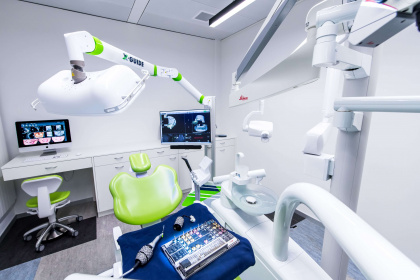Reception: ![]() +36/30 show
+36/30 show
6721 Szeged, Osztrovszky utca 12.
Open every week-day since 1996
Open on week-days from 8 AM to 9 PM
24 578 satisfied customers
Serving you since 1996
Many patients put their trust in us and ask us questions about dental implants. While an immense wealth of information is readily available from different sources, it is often difficult to assess the credibility of those sources. In our dentistry, we provide our patients with all the necessary information on dental implantation before they come to a decision. The information you find on this page has been put together to help you out with some insights.
Replacing your missing teeth is not merely an issue of cosmetic dentistry – it is also a health issue. Many patients put off having their missing teeth replaced, risking grave – and often latent – health consequences.
The health hazards of putting off tooth replacement:
So if you have any missing teeth, it is a good idea to see a specialist as soon as possible in order to avoid future health consequences that may in fact require much more extensive interventions and treatment.
The solution
Today, dental implantation is considered a simple routine surgery, and is carried out day after day at our dentistry. If your bone structure is sufficiently dense, we can insert your dental implants within just a few days from the preparation of the treatment plan. Once the healing process has completed, we can cement the crown or bridge in position. By using this procedure, we can replace the teeth you have lost with a solution that offers full functionality.
Dental implants are artificial tooth roots made of tissue-friendly titanium. They have been used in dentistry with outstanding success because they show the following properties:
Biocompatible: Because of their special properties, dental implants integrate into the human body without causing any problems.
Anti-allergenic: The dental implants we use at our dentistry are made of titanium. Thanks to their special surface finish, they rarely or never induce any allergic reaction even in patients with metal sensitivity.
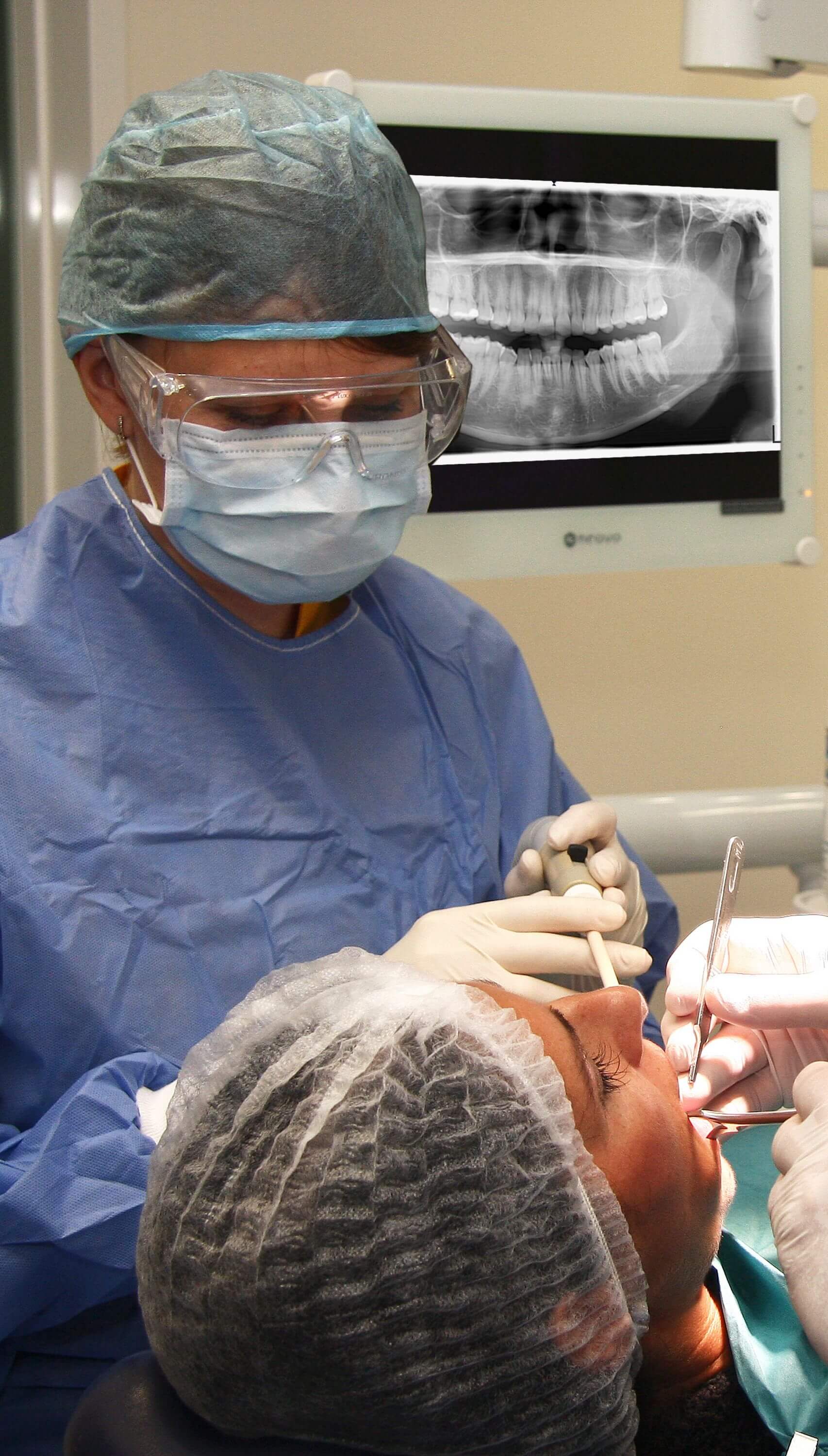
Durable: Depending on the type of implant used, the manufacturer’s guarantee covers at least a period of five years, but some implants come with a lifetime guarantee.
Loadable: As far as the force of chewing is concerned, dental implants are as loadable as any of your own healthy teeth. Your dental implants will allow you to enjoy any difficult-to-chew foods. The crowns and bridges we fit to your dental implant can be made of any available dental prosthetic material.
Dental implants offer you the following additional advantages:
Implants in themselves will not give you back your chewing ability. Implant surgery is followed by a healing period of three to six months. During this phase, the artificial root integrates into your bone; that is, your bone structure grows around and stabilises the implant. As the next step, we place a so-called threaded abutment into the implant. This abutment will serve as the base onto which your crown or bridge may be mounted.
vissza a kérdésekhez
At our dentistry, we continuously maintain high service standards and make every implant surgery a success. These are the keys to our commitment:
vissza a kérdésekhez
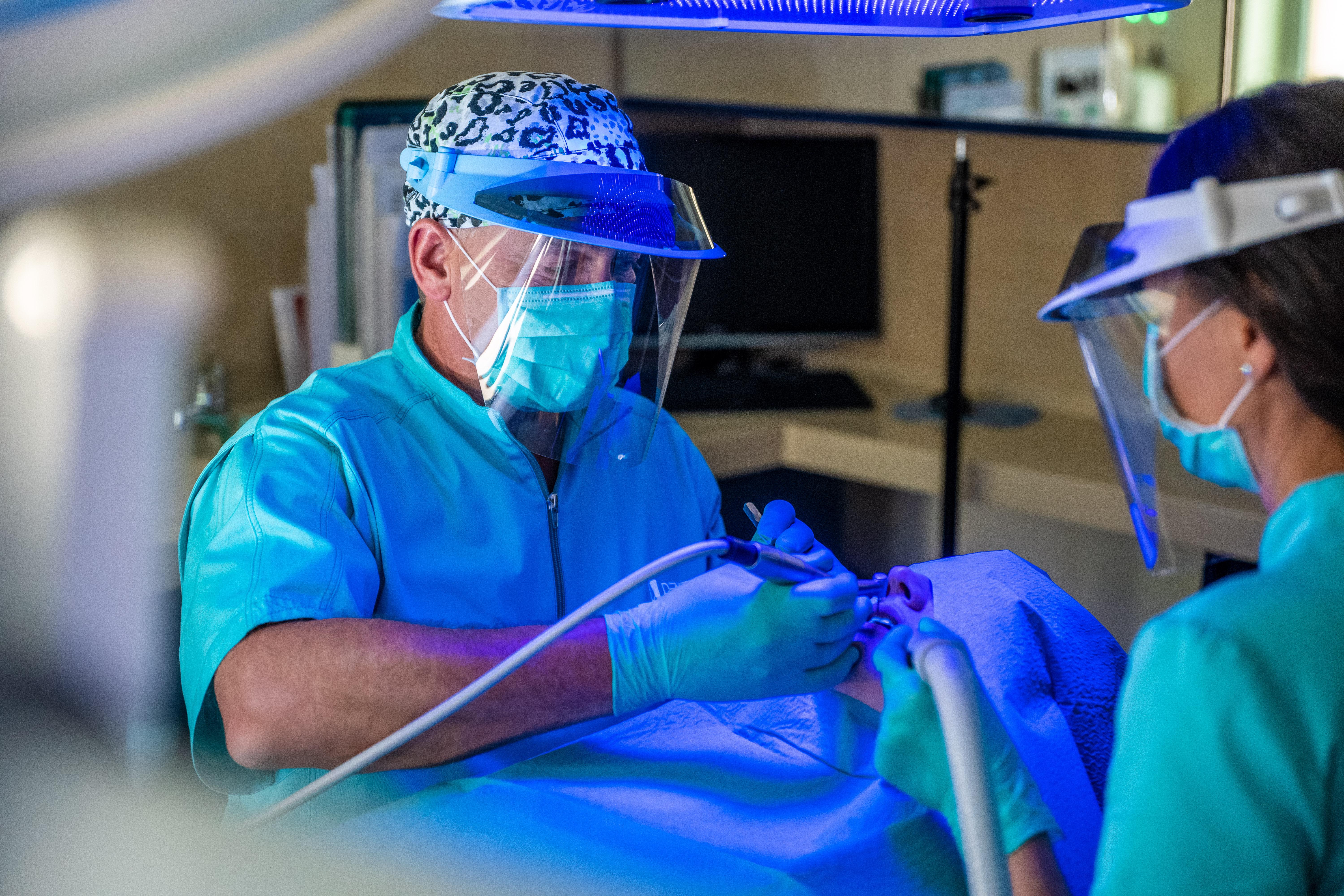
Dr. Gábor Benedek, Senior Dentist at Dentha Dentistry Szeged, holds a Master of Science in Implantology and Dental Surgery from Münster University, Germany. He is a specialist in conservative and prosthetic dentistry as well as a dentoalveolar oral surgeon. He performs hundreds of dental implantations every year.
This is what his patients think of him:
“I would like to say thank you for your conscientious and accurate work as a dentist. Thank you for the outstanding patience you have shown me, which I especially appreciate as a patient of advanced age who, because of an allergy, dreads the dentist’s chair.”
“Thank you for the magic you have done for me! My brand new teeth shine and glisten and work like a miracle. I wish you all the best in your career – the best of health to you, to your family, and to your assistants!”
(Erika Dudás)
“I’ve been visiting your dentistry for almost a year now on a regular basis. It fills me with satisfaction that the number one priority at this dentistry is indeed the patient. This impression is only reinforced by the pleasant ambience of the waiting room, the surgery with its modern, cutting-edge equipment, and the team work that your qualified staff members put in every day. I really appreciate the effort your staff has been making to flexibly adapt to my hectic schedule – for me, being able to reconcile my dental appointments with my work has been key. It also deserves praise that I was always received with the same warm hospitality, whatever the time of day.”
(Mária K. Tóth)
vissza a kérdésekhez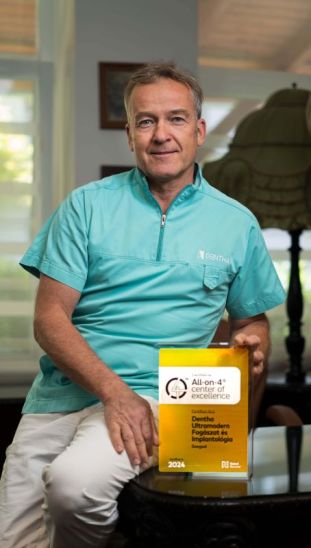
People often have misconceptions about dental implantation. Many seem to think that implant surgery is quite an ordeal involving considerable pain. Actually, surprising as it may be, 95% of our patients undergoing implant surgery experience no pain whatsoever during the operation. There are two reasons for this. On the one hand, all interventions are performed under local anaesthesia. On the other hand, dental implants are actually set into bone where there are much fewer nerves to send out pain signals.
However, depending on their pain tolerance levels, certain individuals may experience some swelling or slight pain, which can be treated by taking some pain medicine. We still recommend that you make no plans for the rest of the day after your implant surgery: it is wiser to rest and regenerate.
vissza a kérdésekhez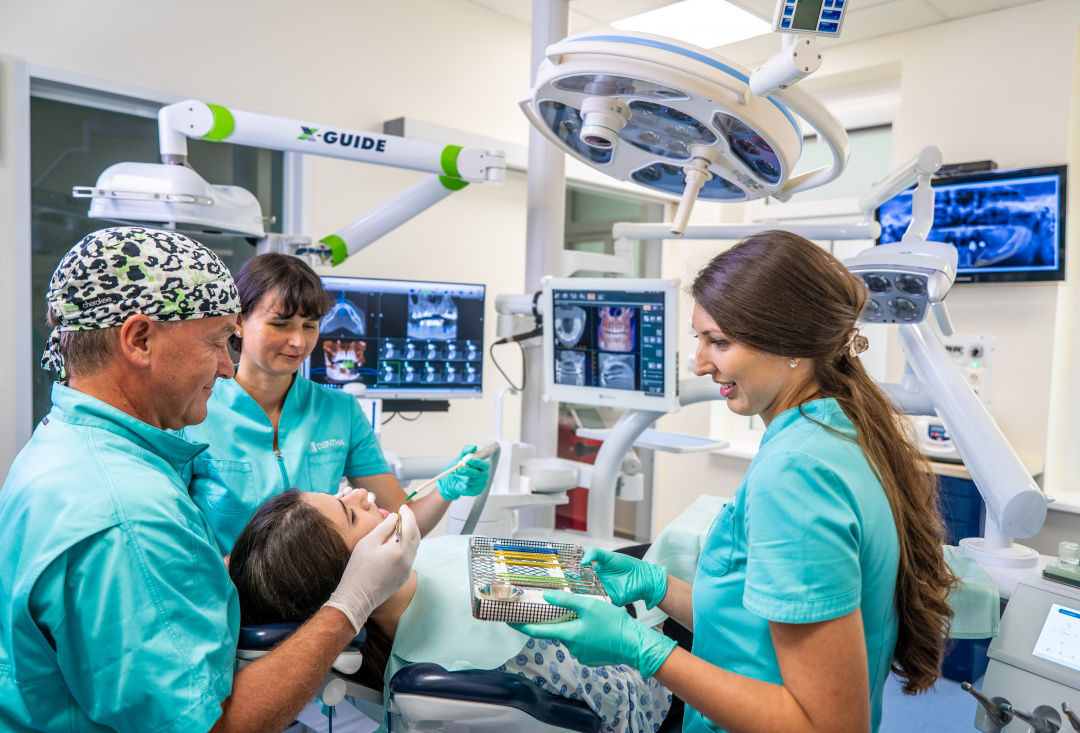
Implant surgery is performed under local anaesthesia, which has the same effect and consequences as any anaesthesia applied during any other dental treatment. Occasionally, there may be some tissue damage around the affected tooth; however, this may be reduced to a minimum by applying careful planning and good operative technique.
Implant rejection is very rare, and when it happens, there is always a way to identify the causes. Thorough oral hygiene and regular check-ups may help ensure long-term implant retention.
If the tooth replacement has been carried out with due professional care and the implants are regularly checked, your implants will last as long as any of your own teeth sitting adjacent to them. As your crowns and bridges are in use 24/7, it is a good idea to have them replaced every 10 to 15 years, while your dental implants may stay and serve you for many more years to come.
vissza a kérdésekhez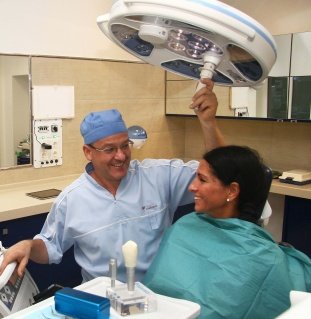
At Dentha Dentistry Szeged, our dental implant retention rate is 98.6%.
Implant manufacturers warrant their products against problems caused by any defects in the materials they use. DenTi® and Camlog® offer a 5 year guarantee period, while Nobel Biocare®, Replace® and Active® implants come with a lifetime guarantee.
If an implant is lost for reasons other than defects in the material, Dentha Dentistry undertakes a guarantee to place a new implant within a period of one year provided that the patient has fully complied with the guarantee conditions and that the patient’s health condition has not changed in a way that would reduce the chances of implant retention. For more information on our guarantee conditions, please read the relevant section of our website.
The fixed dental prosthetic structures mounted onto the dental implants come with a guarantee of up to three years.
vissza a kérdésekhez
Implant surgery is a carefully planned process involving a number of specific stages. We place great emphasis on ensuring that you fully understand what will happen if you decide to undergo implant surgery at our dentistry.
1. Consultation and overall health assessment
To ensure the success of your dental implant surgery, we must first understand your current overall health status. We carefully check whether there is any contraindication to surgery. During the consultation, our dentists answer all your questions to help you make the right decision.
2. Digital diagnostics and analysis
Our digital diagnostics equipment (such as our panoramic radiography machine and our oral camera) helps our implantologist get a clear picture of the current condition of your teeth and make an accurate diagnosis. (In more complicated cases, CT imaging is also available.) On the basis of your diagnosis, your dentist will walk through the treatment plan with you.
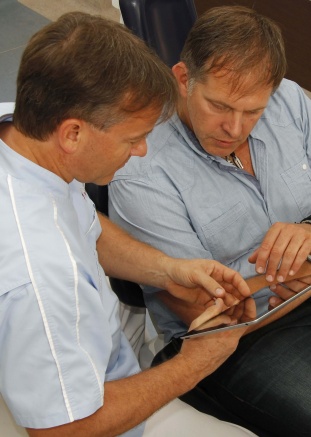
3. Treatment plan and price quotation
There may be several alternative solutions to any given dental problem. Your dentist will describe all these alternatives in a written treatment plan. You will get price quotations based on the various solutions. This will help you get a clear picture of the actual costs of any given treatment. Before implant surgery, you will have to make a number of decisions. The medical and support staff at our dentistry will be happy to answer any question you may have. If you have been denied dental surgery at another practice, or if you are unhappy with your existing implants, we will certainly find a solution.
4. Preparing for the surgery
Once you have decided what treatment alternative is best for you, you and your dentist will jointly set the date of implant surgery. Before surgery, your dentist and dental hygienist will make sure that your oral cavity is in a condition that reduces any chance of an infection: your tartar will be removed and any cavities you may have will be filled.
5. Implantation
Once the panorama radiograph or the CT image is available, the implantologist will plan the length, thickness, and ideal position of the implants. As the next stage, working under local anaesthesia, your implantologist will prepare the implant sites in the bone and then place the implants. The implants will be placed into the bone under your gum. In order to ensure maximum sterility, the incision on your gum will be closed with suture. Once this has been done, the surgery is over and done with.
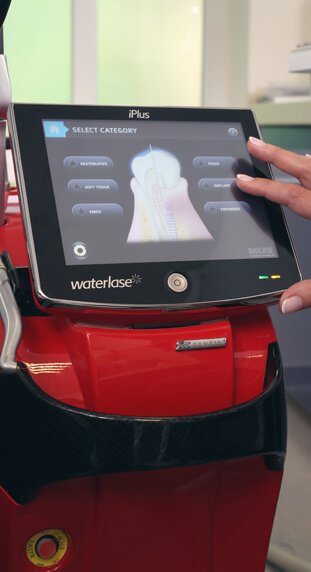
6. What happens after implant surgery?
After your implant surgery, it is a good idea to follow these rules of thumb for your own personal safety:
7. Making temporary crown
If the implants have been placed where they are highly visible when you speak or smile, we will mount temporary crowns on your implants. This eliminates your sense of discomfort already during the healing period.
8. The healing period
Your permanent dental prosthesis may be mounted on your implants once the bone heals around them, providing the necessary stability. This process will depend on your health status and dental hygiene habits. Ideally, if your bone structure is strong and dense, healing may take place in as little as three months; however, in some individuals it may take as much as six months.
9. Making fixed implant-retained tooth replacements
Once the healing period is over, your dentist will make an impression of your teeth and implants, on the basis of which the dental laboratory will produce the ideal tooth replacement parts of your choice.
a) Fixed non-removable tooth replacements: These tooth replacement parts are fixed onto your teeth and implants by applying permanent dental cement. We try to make as many separate units as possible. In this way, if you experience any problem down the road, only the affected tooth replacement will have to be removed and remade. Fixed non-removable tooth replacements may be recommended for anyone who has enough teeth and/or implants.
b) Fixed removable implant-retained tooth replacements: The completed single-unit dental prosthesis is fixed to the implant(s) using screws. If necessary, the prosthesis may be removed easier. Fixed removable dental prostheses may be recommended for anyone who, because of financial or health reasons, can only have a lower number of implants placed and/or has no natural teeth.
Zirconium ceramic:
cutting-edge technology
hypo-allergenic
aesthetically appealing
durable
Pressed ceramic (full ceramics):
cutting-edge technology
hypo-allergenic
natural appearance
Metal ceramic:
traditional technology
durable
For detailed information on the materials used to make our crowns, please see the menu item Crowns and bridges in the Treatments section of our website.
If you are happy with the shape and colour of your fixed tooth replacement and it provides a comfortable fit, your dentist will permanently fix it in position using dental cement or screws. At this point, the process is completed. You can once again smile, eat and drink without worrying about anything: this procedure ensures that you regain your original chewing ability.
Call +36 30 206 9532 for an appointment with our dental implantologist! We will answer all your questions concerning dental implantation in detail so you can learn how you can get rid of the discomfort and awkwardness that your missing teeth cause you.
Come see us and experience first-hand the quality service our dentistry offers you!
We look forward to meeting you soon!
vissza a kérdésekhezIf you want your prosthesis to keep strong and firm, you will need at least one implant. Usually, the implant is a screw made of steel, that during the period of osseointegration becomes an organic part of your bones. Depending on the number of missing teeth, one or more implants are necessary to fix the effective prosthesis (crown, bridge, or denture) On the place of lacking teeth -providing that there is a perduring period of absence -the jawbones are gradually wearing away.
If there is not enough bone structure to accommodate the implant, the bone should be grafted. This so-called augmentation can be executed by different methods and materials, for example by grafting inborn bone or by using bone replacing materials. Before osteoplasty (replacing the missing bone), we suggest you our most up-to-date, dental hydrogel expander pre-treatment. Click here to discover the details.
vissza a kérdésekhez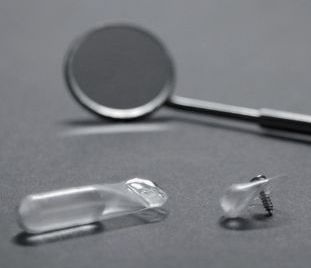
There are more than 150 companies in the world, that produce implants. In our dental clinic, we use only the implants of the most prestigious, most reliable products that are world-wide appreciated and used. These companies are engaged in the field of continuous research-development. Each of them is made of titanium, but they differ in their surface relief and regarding their fragility guarantees. This guarantee is not to be mistaken with the placement guarantee. We replace implants that have fallen out within a year in accordance with the written guaranteed conditions.
Our clients – considering divers points of view- can deliberately choose from the above-mentioned products, however, based on certain medical considerations, we also make our proposal. On all the three types of implants we can make steel-ceramic, zirconia-ceramic or full ceramic crowns and bridges.
vissza a kérdésekhezThe X-guide dynamic navigation implant system is the most accurate way of installing a dental implant. This technology, just like a GPS, navigates the doctor step by step during the implant procedure. This system is already used in the USA and in other parts of the world. We are glad and proud, that uniquely in the Southern Alföld (Great-Plain) region, in Szeged, at the Dentha Ultramodern Dental Clinic and Implantology, it is also available for our clients. Based on previous dental CT, our dentists set up plans on computer regarding the precise location of the implant within the bone, considering also the anatomical structures, the surrounding teeth as well as the effective bone offer, and the adequate axis position. The optical navigation system helps them to install the implant by a tenth of a millimeter precision with the correct angles there, where it should be. Click here to discover more about the X-guide 3D dynamic navigation system.
You can read more about X-Guide 3D implant navigation by clicking here.
Image: www.nobelbiocare.com
vissza a kérdésekhez